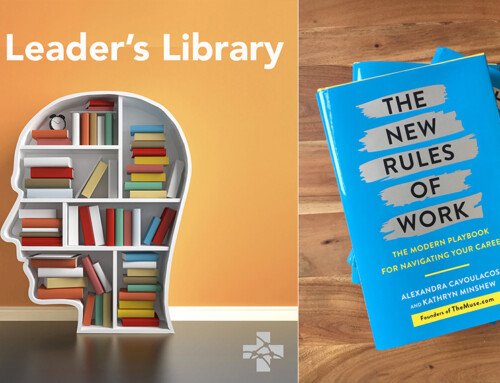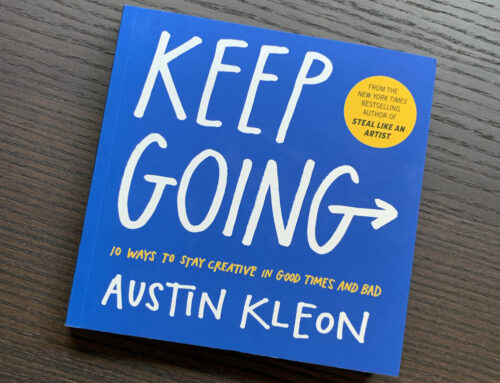 Five Days at Memorial by Sheri Fink (@sherifink) invites us to examine what we expect of ourselves in the medical community during times of disaster: what is demanded by our Emergency Medicine training in triage, disaster management, and end of life care, and what ethics form the foundation of our practice when systems around us fail. Dr. Fink’s book offers an opportunity for us, as health care practitioners, to openly discuss with the communities we serve the ethics that crash into conflict in settings of unfathomable duress and insufficient resources.
Five Days at Memorial by Sheri Fink (@sherifink) invites us to examine what we expect of ourselves in the medical community during times of disaster: what is demanded by our Emergency Medicine training in triage, disaster management, and end of life care, and what ethics form the foundation of our practice when systems around us fail. Dr. Fink’s book offers an opportunity for us, as health care practitioners, to openly discuss with the communities we serve the ethics that crash into conflict in settings of unfathomable duress and insufficient resources.
Introduction
In recent years, the U.S. and the world have experienced unprecedented storms and hazards resulting in large numbers of fatalities and billions of dollars of damage to infrastructure. This phenomenon has been complex and varied as each natural hazard presents unique challenges. The types and volume of injuries may be unfamiliar or overwhelming, the rates at which patients arrive at hospitals may be inconsistent, the physical condition of the hospital may be compromised, and the staffing may become unpredictable, as providers and ancillary staff are either unable or unwilling to come to the hospital. In these disasters and the aftermath, hospitals and providers have witnessed a near immediate and immense disparity between their usual practice and the severe, disaster-induced lack of basic resources confronting them.
Brief Synopsis
Dr. Sheri Fink, in Five Days at Memorial, takes the reader into the devastating environment of Memorial Hospital in 2005 when Hurricane Katrina slammed into New Orleans and unleashed the mountain of water held behind the city’s insufficient levee system. After flood waters destroyed Memorial’s backup generators, practitioners were left to care for critical patients in a hospital stranded in more then 100 degree F heat without electricity, water, sanitation, food, basic security, accurate information or a clear plan for evacuation. Based on extensive investigation and interviews with practitioners, hospital staff and executives, patients and their families, government officials, and attorneys, Dr. Fink offers a compelling description of the circumstances that led to the fatal decisions and actions carried out at Memorial Hospital.
The account follows the investigation of the disproportionate number of deaths at Memorial, the accusations of “mercy killing” raised by witnesses and coroner reports and the arrests of Dr. Pou and Nurses Landry and Budo. Five Days at Memorial, searches for clarity in the mounting controversies, differences of opinion, politics, confusion, and ethical quandaries ignited by the case.
A grand jury ultimately declined to indict the practitioners and Dr. Pou has subsequently lobbied for broad legal protection for physicians working in disasters, published on the ethics of working in disaster settings [1], and collaborated with a group that has sought to discredit Fink’s initial ProPublica article from 2009 and her current book.
The questions, controversies, and ethical conflicts detailed in Dr. Fink’s book require us to further examine our practices in disaster settings. Beyond the obvious question of how we can better design disaster response systems, lies the complex questions of how we train providers to confront seemingly insurmountable obstructions to patient care with ethical decisions and ingenuity? How can we prepare communities for resource scarcity and the decisions that such scarcity forces on us? How do we ensure that physicians, nurses and ancillary staff report to work, maintain the highest professional standards, and remain accountable to patients despite chaotic, unrelenting, and frightening circumstances?
Clinical Relevance
Five Days at Memorial could not be more relevant to the practice of Emergency Medicine. Emergency physicians operate in settings of controlled chaos with largely unpredictable injury and illness patterns as well as patient load on any given shift. Beyond additional training in logistics and resource-limited patient care, we have a responsibility as a specialty to develop clear ethical guidelines when triage in a setting of extreme resource scarcity collides with patient autonomy and advanced directives as it did at Memorial Hospital.
Three core elements of Emergency Medicine that are of obvious importance in Five Days at Memorial:
- Duty to respond: The Principles of Ethics for Emergency Physicians reads, “Emergency physicians shall… respond promptly and expertly, without prejudice or partiality, to the need for emergency medical care.”[2] Iserson et al consider how this translates into the ethics of emergency physician disaster response when we and our families may be personally affected by the chaos of a disaster.[3] The tension between the stories of Dr. Pou, accused of euthanizing patients, and Dr. Knight, who was retrospectively accused of abandoning his patients, is palpable against the backdrop of physicians and nurses who didn’t report to work.
- Triage: Treating the sickest first and others on a first-come, first-served basis satisfies several underlying ethical concepts of distributive justice. Each patient is offered the appropriate level of care to ensure equal chance of recovery and survival (equal chances) and the most vulnerable patients are treated initially to ensure their maximal benefit (the difference principle). Triage in disaster settings provides practitioners, patients, and families with a predetermined set of practices designed to minimize arbitrary decisions weighted by personal bias when resource scarcity coerces us to subordinate some patients’ needs to those of others to achieve the greatest overall benefit. In settings in which patients may need to be triaged for comfort care, fairness in implementation and pre-existing, well designed decision trees are essential to maintain trust in our healthcare systems.
- End of life care/ DNR: Comments from multiple readers posted to Dr. Fink’s initial article, The Deadly Choices at Memorial, repeatedly stated, “you were not there, you have no right to judge.” These comments were in response to moral and legal questions raised by Dr. Fink in the discussion of the staff decision to triage DNR patients for expectant management and Dr. Pou’s administration of sedatives and pain-killers to multiple patients. In medicine, we absolutely have a responsibility to judge the medical care that we deliver as is done in every specialty through morbidity and mortality reports. Rather than changing the standards of care to fit the actions taken in disasters, we should be advocating for a standard, comprehensive analysis of disaster experiences that will inform future practice. Retrospective analysis of the care provided in disaster settings undertaken with compassion and humility is absolutely essential to providing improved care in the next inevitable disaster.
Book Club Question Corner
- How should emergency physicians behave in circumstances where basic sanitation, clean water, electricity, outside support, clear timelines for evacuation or reinforcements are absent while the devastation of community resources and the threat of violence are ever-present? Is there a duty, and to what extent, to stay and treat despite threats?
- The physicians and nurses of Memorial Hospital followed a reverse triage in which the sickest were designated for evacuation last. How was the use of reverse triage and its implementation at Memorial potentially beneficial or flawed? Does effective triage entail an incursion into patient autonomy to be effective?
- Dr. Pou subsequently helped write and pass 3 laws in Louisiana protecting physicians who work in future disasters while advocating for a change in the standards of medical care in disasters. Should medical care standards be changed in disaster settings? If physicians are granted legal immunity, what mechanisms should be in place to evaluate the work of practitioners during disasters? How should accountability to patients caught in disasters be enacted?
Live Discussion
Stay tuned for upcoming Live Discussion with Sheri Fink, MD and the ALiEM team using Google Hangout on Air!
- December 19, 2013 at 9 pm Eastern Standard Time. Please respond below in the comments section, if you want to participate.
References and Disclosures
- Pou AM. Ethical and legal challenges in disaster medicine: are you ready? South Med J. 2013; 106(1):27-30.
- American College of Emergency Physicians. Code of ethics for emergency physicians. Ann Emerg Med. 2004;43:686-694.
- Iserson KV, Heine CE, Larkin GL, Moskop JC, Baruch J, Aswegan AL. Fight or flight: the ethics of emergency physician disaster response. Ann Emerg Med. 2008 Apr;51(4):345-53. Pubmed
Disclaimer #1: Neither I nor this website have any affiliations, financial or otherwise, with the book or Amazon.com.
Disclaimer #2: By participating in this online discussion, we reserve the right to publish your attributed thoughts in a synopsis for future print publications.
Edited by Dr. Nikita Joshi



